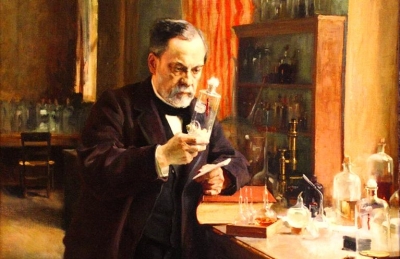
Louis Pasteur had a profound impact on medicine and was one of the greatest benefactors of humanity. He was born in 1822 in Dole, France to poor parents and grew up as an average student with an interest in art.
Pasteur’s brilliant career had a somewhat slow start. He failed his mathematics examinations and was initially rejected from the University of his Choice. He eventually succeeded and was accepted as an assistant to Antoine Balard, a chemist who discovered bromine.
While working with Balard, he became interested in the physical geometry of crystals. He discovered evidence of the chirality or asymmetry of chemical compounds and was awarded a double doctorate in physics and chemistry for his research. Soon after this he was offered a post at the University of Strasbourg and began studying fermentation. His findings helped revive the French wine and beer industry.
In 1854, while working at the University of Lille, Pasteur was asked by local tradesmen to find out why vinegar was spoiling. His research led him to the discovery that microbes in vinegar were the probable cause and that they could be killed by boiling and then cooling the liquid. This process is called ‘pasteurization’ and is used universally today in the dairy and food processing industries for food preservation.
Pasteur also proved that most infectious diseases are caused by micro-organisms. This became known as the ‘germ theory’ of disease. He founded the science of microbiology and discovered vaccines for fowl cholera, rabies and anthrax.
Pasteur once said that, “In the field of observation chance favours the prepared mind”. Perhaps this is why he was able to make such astonishing discoveries armed only with his microscope, his intuition and a desire to help others.
Picture Credit : Google




